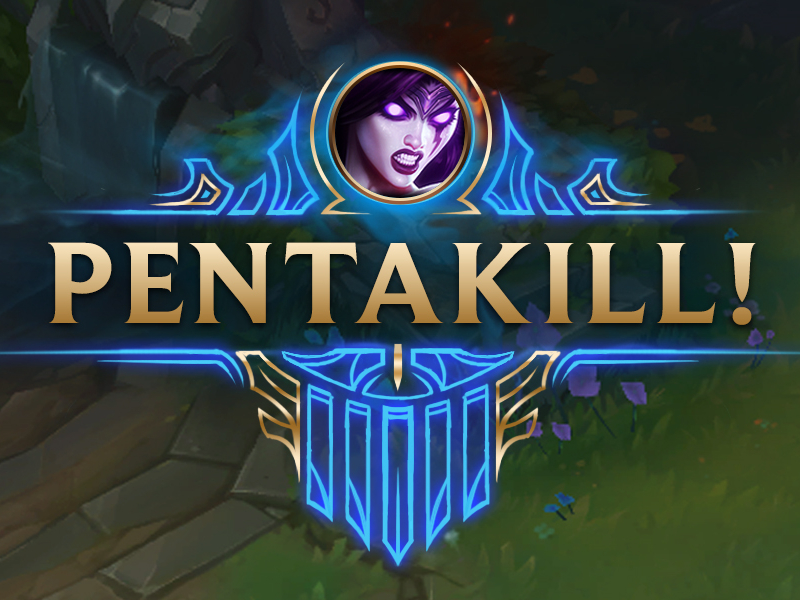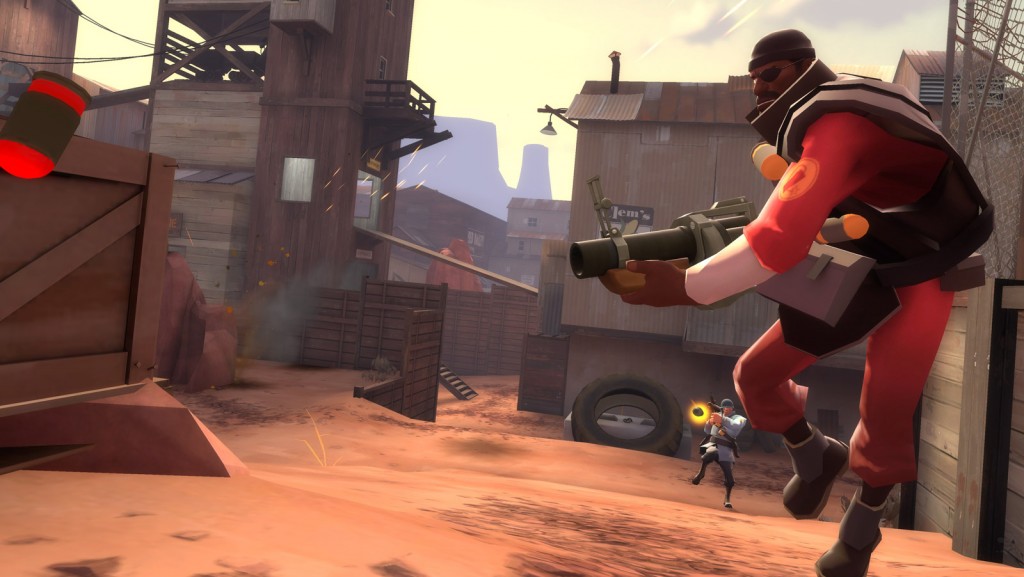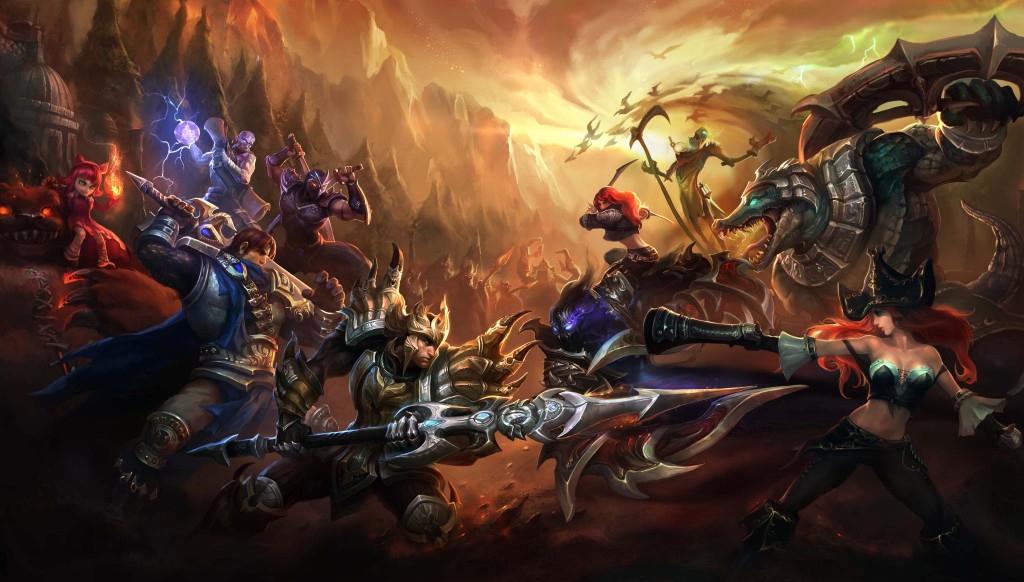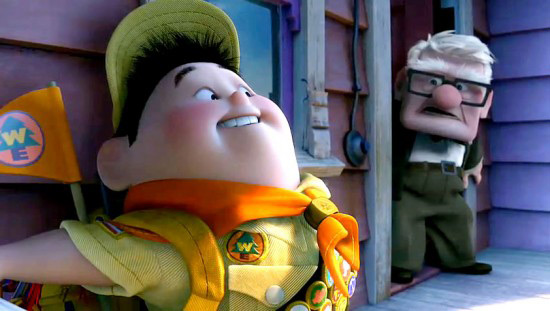 There’s been a lot of discussion about how to prevent toxic behavior in players of online competitive games. Today I’d like to suggest a different approach.
There’s been a lot of discussion about how to prevent toxic behavior in players of online competitive games. Today I’d like to suggest a different approach.
Many are turned off by, afraid of, or generally just disinterested in the idea of competition. There are good reasons for why this is. Unless you’ve been kind of raised into a culture of competition – and sometimes, even if you have – chances are you’re going to find many aspects of competition to be unattractive.
With regards to competitive videogames, I think we all tend to think about things like fighting games, first-person shooters, RTS games, Dota-likes and perhaps a few other genres. Anyone who has spent a decent amount of time dealing with these kinds of communities knows that they can be a bit… prickly. Another way to put it is that these communities are so toxic, that many people who would otherwise love to play a strategy game, either play the games exclusively single-player or avoid playing them altogether.
This is understandable, especially for people who play games to relax or as a bit of escapism between shifts at a job where people are being jerks to them all day. The last thing they want to do is jump into another even more emotionally volatile situation.
The mistake is to think that this is the inherent nature of competitive games.
I argue that people being jerks to each other is not a property intrinsic to competition, but rather due to the way we are framing the competition. The words, icons, verbs, and images we use are all working against us if we want to create a non-toxic atmosphere.
My point is that gameplay mechanics have little to do with this problem. With the proper framing, I believe we could largely just re-skin League of Legends, leaving most or all of the gameplay mechanics in tact, in a way that invites a tiny fraction of the toxicity it’s known for today.
I will be leaning heavily on League of Legends for my examples, but by no means is it exceptional in this regard. Almost every popular competitive game – other than those marketed at children and families – has similar problems. I am focusing on League because not only is it incredibly popular, but in many ways it is the quintessential video game, with its violent fantasy tropes, RPG mechanics and other elements.
Theming a Team-Based FPS
I used to be an avid FPS player. As anyone will tell you, the Counter-Strike community is toxic as hell (at least, it definitely was five years ago; perhaps things have changed with CS: Go). It’s scary how people will sling YouTube-comment-level hate at each other as casually as one might ask about the weather. I’m talking seriously vile and repulsive stuff – the community was really aggressive towards homosexuals, women, and of course new players above all else, but really everyone is a target. I played the game for a long time anyway and just weathered the abuse, because I liked Counter-Strike (I still think it’s one of the best FPS games we’ve created, sadly).
In 2008 Team Fortress 2 was released, with a functionally similar, but superficially different theme. It was colorful, had a comic-book/cartoonish style with backgrounds out of a Road Runner cartoon, charming characters and sincerely funny writing (whoever writes for the TF2 blog is one of the funniest writers on the internet).  Despite the deviations from the dark fantasy themes of Quake or the realistic military theme of Counter-Strike, when you step back, the themes still have a lot in common. You’re still tossing grenades and rockets at each other and turning someone into a pile of meat giblets. You’re still shooting someone with a shotgun at point blank range and scattering their blood against the back wall. And above all else, you’re still killing each other.
Despite the deviations from the dark fantasy themes of Quake or the realistic military theme of Counter-Strike, when you step back, the themes still have a lot in common. You’re still tossing grenades and rockets at each other and turning someone into a pile of meat giblets. You’re still shooting someone with a shotgun at point blank range and scattering their blood against the back wall. And above all else, you’re still killing each other.
However, even with the relatively modest thematic tweak, the community was improved massively. I remember thinking back then – huh, this is strange. People aren’t slinging racial and homophobic slurs at me… are my speakers on? People were actually kind of nice to each other.
Not only that, but I seem to recall hearing a female voice in at least one out of every other TF2 game I played (and I think I logged some 5-600 hours on that damn thing, all told). Even weirder, when female humans said words in voice chat, they were rarely harassed, and when they were, the harasser was scolded or kicked from the server.
What was going on? My feeling at the time was that with these tiny small steps it took away from the humorless power fantasies of domination, Team Fortress 2 went a long way in not only sending better signals about what it is we’re here to do – “have some fun together”. Further, it also invited a slightly better, and more importantly, wider stock of people across the board.
Incorrect Cues
Here’s the problem: we’re giving players incorrect cues about how they should look at themselves, each other, and the relationship between the two. You are actually not a merciless, invincible ass-kicker. The opponent is not a pile of garbage noob villain that needs to be eradicated. The purpose of the relationship is not for you to obtain glory through domination. That just really is not what any games are actually about, yet that’s the message we’re sending.
Getting back to League of Legends, let’s think about some of the more egregious examples. In League, “getting kills” is heavily focused on in the theme. Obviously, you get gold and experience for doing it, so to some extent it makes sense. However, there really isn’t any reason for the game to pile on the audio-visual celebrations for you personally getting two, three, four or five kills in a short time (which the game refers to as triple kill, quadra kill, pentakill, etc). A female voice gets very excited and announces your achievement.
In other words: you’re already getting rewarded for getting those kills by getting the gold and experience, as well as by removing that enemy player from the game for a little while (allowing you to push towers or other objectives). Outside of violent power fantasy, why is that extra feedback there?
While this is by no means a new feature to League of Legends, the game also announces it to all players when a player has gotten a long succession of kills without being killed. The player ascends through different “titles“, such as “unstoppable”, “Godlike”, and “Dominating”. (One of the titles is actually called Dominating!) Half of these titles have absolutely no bearing on the game in terms of the rules, they are only there to stroke the player’s ego and make him feel like he is, in fact, dominating.
But dominating isn’t what League of Legends is about. Dominating isn’t the goal of the game. You can dominate, and still lose. The game is about getting objectives, pushing lanes, and destroying the opponent’s Nexus. All of this can be done without anyone “dominating” anything.
The Deeper Thematic Problem
I feel like many of those who have read this far are going to be saying, yes, of course it’s about power fantasy. People like that, so that’s why it’s there!
Yes, sure – people do like it. People like a lot of things that have absolutely no place in League of Legends. Perhaps we should have a news ticker going over the top quarter of the screen, because people like reading the news. Or perhaps a window that just shows your favorite cooking show, or hell, how about just a porn window? People LOVE porn windows!
Or hey, people also like winning, so perhaps we should ensure that every player gets to win no matter how the game goes. My point is simply that just because people like something doesn’t mean it fits into the game. There may be other costs to introducing something to a given system that make it not-worth-adding.
I would say that this domination thing is totally not what any competitive games are actually “about”, and it incurs huge costs otherwise that make it not worth implementing.
On the mechanical side, the power-fantasy stuff actually can deform the way players actually play the game. Players will make less-optimal moves, purchase less-optimal items specifically just to further their little power fantasy mini-game.
On its own, I would say that’s a serious mechanical game design issue, where players are pursuing some weird other goal that has nothing to do with the game’s actual goal. Actually, this goes back to my previous article a bit – and perhaps, if you’re viewing something like League as a toy, this isn’t as much of a mechanical problem).
But looked at on the player-experience end, this also brings out other issues. Player A is going for his little domination strategy. He is looking to dominate other players, as the game has suggested he perhaps should. But then one of his team-mates does something to undermine that. It could be that his team mate made a better “pursue the actual goal” call, or it could be that his team mate just messed up. In either case, though, this player has now been blocked
Here’s the key thing: players in the “I want to dominate” mindset are then forced to think “I am getting dominated” once things start going awry. They are living in a domination universe, in a sense, and if they lose, some part of them feels like their whole world is crashing down on them. This is where you start getting the horrible behavior.
So they lash out, sometimes at players on the other team, but most especially at anyone they can blame for it. They want desperately to pin the blame on other players on their team so that they can say “yeah, I guess I got dominated, but it was really THIS GUY who got dominated and just pulled us all down, it wasn’t my fault!”
I think most of these people who are toxic as hell, if you took them aside and splashed cold water on their face or something, they would tell you that of course it doesn’t really matter whose fault it was. It’s just a game – their entire identity isn’t riding on their status as a skilled player, and it certainly isn’t hinging on how this individual match goes. Yet in that moment, when they are pursuing that domination, it feels that way.
To dominate someone is to dehumanize them, at least in some small way. They are lesser, they aren’t one of you. To sling the kind of hate people do in these games, you also have to dehumanize them in a similar way. These games tell us that the one form of domination is perfectly OK, and the other isn’t.
Crush, Kill & Destroy!
It’s not just the egregious examples like “Pentakill” that send these domination signals. It’s kind of everywhere in videogames. You have to kill minions and other players to get gold. Using that gold, you can buy weapons. Using those weapons, you can kill bigger monsters and destroy towers.
And of course, the whole goal is to destroy the enemy nexus.
Now, I’m not taking the angle that violent images or themes cause people to be violent. I think the reality is a lot more subtle and nuanced than that. It takes extreme circumstances for any person to actually be violent and commit actual, physical acts of violence.
I think we’d agree that there’s probably a slightly higher chance that constant exposure to violent media makes people think more violently. But nevermind even that for now. It is very reasonable to assume that while a player is operating in a world of violence, he is more likely to think violently.
We are creating worlds of violence, and then asking players to play nice with each other. Kill each other, blow up each other’s homes, dominate each other – but don’t you dare say mean things to them? Is that what we’re really asking of people?

Further: are we, as adults, really proud of these kinds of violent high fantasy murder-fantasy themes? Is this something we’d feel comfortable showing to our grandchildren? Or how about our grandparents, what would they think? I think deep down, most of us know that these themes are frankly kind of disgusting. It seems we’ve created a little insular bubble of culture in videogames where we kinda don’t talk about how disgusting and horrible our themes are. We’ve started to wake up to this with regards to the sexist portrayal of women in games, but now it’s time to grow up on the violence end, too. Violence glorification is every bit as ugly, every bit a failure-of-civilization as sexism is, and it should be loudly called out whenever we see it.
Solutions
Off the bat, I need to make clear that my solution is not to throw the baby out with the bathwater. I think competition is a good thing, and competition should be fair. It should reflect player skill. I am totally against the bumper-bowling rubber-banding of things like you’d find in Mario Kart games, for instance.
Instead, I think we really need to move away from the concept of killing and destruction in games in general. Firstly, and completely separate from the negative social aspect, it has negative game design ramifications.
But beyond that, what we’re doing when we kill another player is we’re basically rejecting them from play. Many of these games have a respawn timer, and the player is forced to sit there, removed from the game for a little while. Boardgame designers have mostly figured out that player elimination just sucks – videogame designers should catch up on that.
Some will read the above paragraphs and think that my advice is too limiting. On the contrary, I think that those who think this is limiting are themselves too limited. Competitive game designers need to open their minds to the possibilities a bit more than they have in the past.
You can’t just remove the “killing” aspect from the current game League of Legends and have it still function, of course. My proposals are with regards to future games. Could you make a killing-free Dota-like? Absolutely.
I actually think if space aliens came down and said to us “you’re simply not allowed to make games that have killing in them anymore”, that would have massively positive ramifications on the kinds of games we started to produce. Oh, so suddenly things can’t just be sacks of hit points that you have to empty anymore. We can’t just continue to copy how Dungeons & Dragons did it, year after year, into perpetuity. Huh. I guess we have to actually come up with an actual system of gameplay now!
Obviously, it’d be much better if we could do it on our own, though.
If you’re not compelled yet, how about this angle: the violent domination-based themes simply do not appeal to as many players as something more universal. We already have some universal themes – perhaps things like Flappy Bird or Farmville – but they don’t have to feel cheap or pander-y. Everyone loves the world and characters of the Pixar film Up. Can’t we do something like that?

I picture a future where people are playing competitive games together – it’s an activity we do for fun, and even if it’s 100% fair and competitive, no one feels dominated. Some designer boardgames already offer us some insight into how this can be done – Euros like Puerto Rico, Bohnanza, or Through the Desert come to mind. Those games do well on the “non-domination-front”, but perhaps no so well on the “appeal” front.
As Up and other Pixar films show us, there is no reason that something mature, good and universal can’t also be classy and super-appealing. We have the talent in our industry to do make this happen – all we need is the will.
Except for the theme and the domination-based hate that comes with it, there’s no reason your grandma can’t enjoy a game of League of Legends. By pursuing universal themes, we can invite everyone to come play with us.
Let’s make competitive games – and competitive gamers – that we can show the next generation. Click here for more info on what we can do.
—
Special thanks to my Patreon patrons. Like this article? Please consider becoming a patron!
You must be logged in to post a comment.